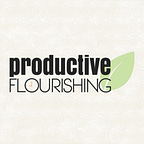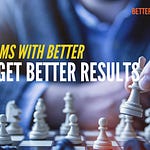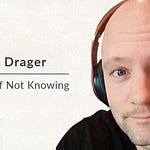This episode originally aired on March 8, 2018.
Topics We Explored:
How you can look at life-changing moments through a lens of clarity to reflect on how you want to move forward
Why it sometimes takes having a breakdown to have a breakthrough
How shifting your identity can take a while, and what you can do to try to overcome the triggers that take you back to the past.
Changing externally doesn’t always immediately lead to internal change.
What you can do to set goals that push you past your comfort zone, while being realistic
Why focusing on the “do” (with a bias towards action) can help you thrive in your pursuits rather than just doing the bare minimum to get through
Why grit and motivation are more important than natural aptitude or ability when it comes to personal transformation
“The strong, stable ground is self-love. That’s as simple as believing that you’re capable, and believing that you deserve.” – Bryan Falchuk (Tweet this)
Links and Resources Mentioned in This Episode:
About Bryan Falchuk:
Bryan Falchuk is the author of Do a Day: How to Live a Better Life, a book that shows readers how to learn to make each day contribute to the life they want to live. Bryan’s experience of a radical transformation, from being obese and depressed to a marathon-running, top executive inspired him to write Do a Day.
Thanks for Listening!
Subscribe to Productive Flourishing on Apple Podcasts to get all the latest episodes delivered straight to your preferred mobile device. This is the perfect option for listening to the show in the car, on the subway, or while you’re working out. Plus, you won’t have to fuss with figuring out how you’re going to listen.
Episode Timestamps
[2:00] - We expect when we go through change that it’s just going to be one thing that we do, but when we come out on the other side we find that it was the conjoining of many things that led to radical change. Even if there is one thing you want to change, you have to be willing to make a lifestyle change if that’s going to stick.
[3:05] - Bryan’s backstory: Bryan was overweight as a kid — his parents got divorced when he was young, which triggered anxiety and depression. In an effort to gain some control, he turned to food. He lost weight in his teen years, but didn’t address the underlying issues. He had put on some more weight, experienced change in his work environment, and the issues surrounding his parents’ divorce rose again. At the same time, his wife had a chronic illness that seemed would take her life (she is okay now), but having to watch his son watch his mom was a transformational moment where Bryan decided he didn’t want his son to have to go through that twice.
[6:00] - This moment was a moment of clarity for Bryan as he began to reflect on the kind of father he wanted to be and the kind of person he wanted to be. He was physically and professionally miserable because he felt like he was failing himself. In moments of clarity like this, you can either notice it and go back to the way you’ve been doing things, or you can grab hold of it and make a change. He chose to grab it and immediately began making changes.
[7:42] - There were three key things he wanted to change: The first was his weight; he had a goal he wanted to get to by the end of the year. The second was his job situation. And the last thing was dealing with the emotional baggage he’d been carrying around from his childhood.
[9:25] - Sometimes, we need a breakdown before we can have a breakthrough. Most of us aren’t willing to get introspective and get to the root of what’s really going on because it’s scary and we may feel comfortable in the mindlessness of our current situation, even if it’s not conducive to who you want to be in the world. As you embark on your transformation, surround yourself with people who are going to hold you accountable to the vision you have for yourself.
[13:15] - Of the three things Bryan set out to change, the one that had the biggest effect was the physical fitness. It’s been a huge avenue for growth - not only does he feel better physically, but he feels better about the role model he provides for his son, and he does his best thinking when he’s running. It also made the other aspects of his transformation easier.
[17:40] - Identity shifts can take a while for us to claim the new person. Bryan talks about his struggle with losing the identity of “the fat kid” and how he came to recognize and appreciate the new direction. It took him a while to get over that, and he sometimes still gets self-conscious and has some triggers that he’s learned how to overcome. Triggers are common for people who have gone through a big transformation - it’s all part of the process. But knowing how to recognize them and work on them is an important aspect of the transformation as well.
[25:40] - Bryan’s philosophy of “Do a Day” is about execution. There are three building blocks to the philosophy - firm foundation, structure, and strong stable ground. The strong stable ground is self-love, which is believing that you’re capable and believing that you deserve.
[27:10] - One exercise Bryan uses is called “stop the but.” As a society, we’re pretty self deprecating, and we don’t take compliments very well. The exercise focuses on saying “thank you” and receive the complement rather than adding what you think is wrong. If you struggle with accepting the compliment you can also ask what someone liked about what they’re complimenting and allow yourself to receive that.
[29:00] - The foundation is about your motivation. What is your reason and your purpose for transformation? Your foundation is the underlying drive that will push you to achieve what you really want to achieve. The question Bryan asks in his book is ‘no matter what else is happening, what will you always care about?’
[30:50] - The house, or structure, are your goals. Your goal should be something that’s really going to push you, but should still be realistic.
[31:50] - The execution comes with Do a Day. For ‘Day’, it’s not about specifically a day, but it’s about the present moment. It’s about a mindful approach that focuses on doing what we need to do in the present moment to pursue our goals, rather than focusing on what we didn’t do yesterday or what we still need to do tomorrow.
[34:00] - One question that comes up a lot of times in transformation by action is “how much a day is enough?” Both too little and too much can become non-motivating or unrealistic. Dissecting your ultimate goals into bite-size pieces can help you work through this. Bryan shares the example of his marathon training plan. If you structure a plan out, it can help guide you to know what success looks like for that day. There will be times when you underperform or over-perform. It’s important to keep these times in perspective and not let them affect what you do in the next present moment.
[41:20] - One of the reasons Bryan emphasizes the word “do” is because it encourages us to take action, rather than “just getting through it,” which isn’t necessarily the best way to live your life. To Bryan, “Do a day” is different from “one day at a time” because it focuses on the action piece. He would rather take action and change the game than just endure his life.
[44:15] - Are there situations that the do a day philosophy is not good for? Bryan thinks that it is pretty universal, but sometimes finds people who don’t apply it. He acknowledges that since he hasn’t experienced everything, he doesn’t know how it might apply in all situations. He has had readers speak out to him about some specific situations where they have found strength in the do a day philosophy.
[47:40] - A year after its release, Bryan is re-publishing his book. There a few things that have changed over the course of the year that he wants to address. One is the parenting chapter, and also adding in a section on self-love. Originally, he wasn’t conscious of the gap, but now it’s become obvious how important that is to include.
[53:10] - Which “do” is most challenging for Bryan these days? Bryan is involved in a lot - his day job, being a father and a husband, writing a book - and he’s worried he might be burning too hard. But he’s enjoying the impact he’s having on people’s lives right now.
[58:15] - Bryan’s challenge for listeners is to “stop the but.” Look at your words and thoughts and stop allowing for the possibility that you can be better and deserve to be better, and just let it be. Find people who will hold you accountable in this.













